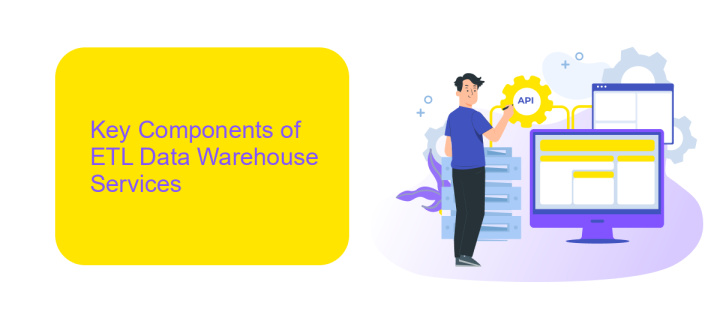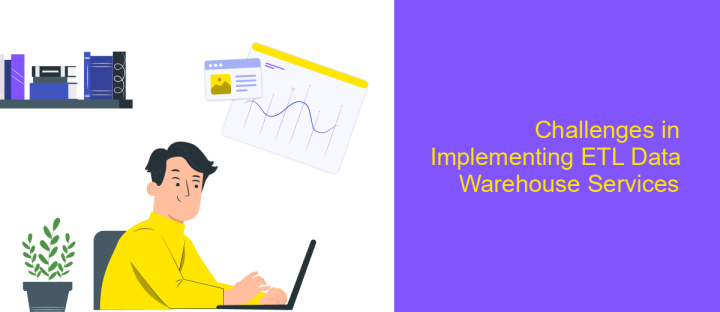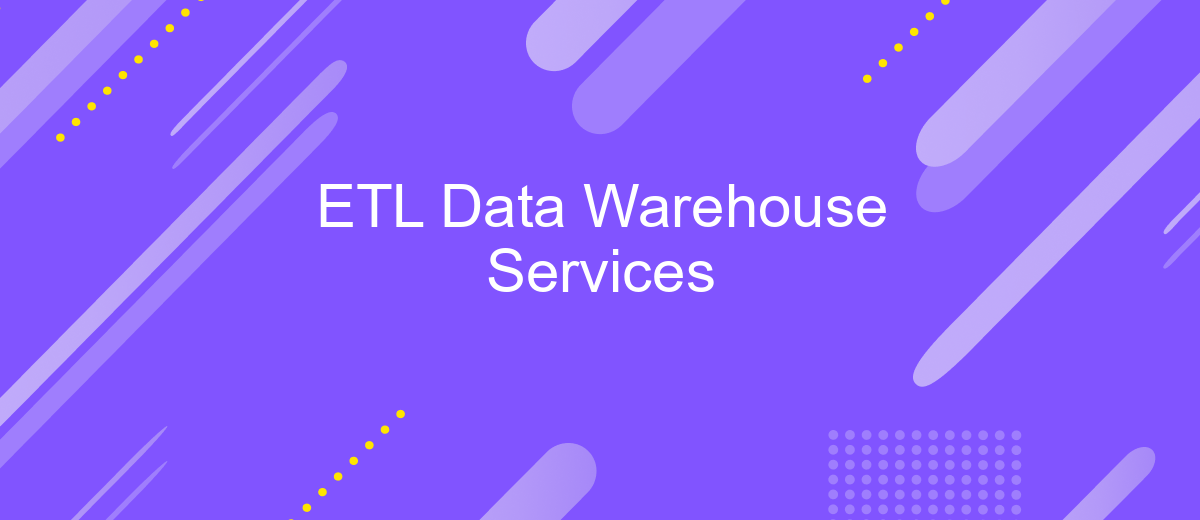ETL Data Warehouse Services
In today's data-driven world, ETL (Extract, Transform, Load) Data Warehouse Services are essential for businesses seeking to consolidate and analyze vast amounts of information. These services streamline the process of gathering data from diverse sources, transforming it into a consistent format, and loading it into a centralized repository, enabling more informed decision-making and strategic planning.
Introduction to ETL Data Warehouse Services
ETL (Extract, Transform, Load) Data Warehouse Services play a crucial role in modern data management by facilitating the seamless integration and processing of data from various sources. These services are essential for businesses looking to make data-driven decisions, as they ensure that data is accurate, consistent, and readily available for analysis.
- Extraction: Gathering data from multiple sources, such as databases, APIs, and flat files.
- Transformation: Converting the data into a suitable format, which includes data cleaning, normalization, and aggregation.
- Loading: Storing the transformed data into a data warehouse for easy access and analysis.
One of the tools that can significantly simplify the ETL process is ApiX-Drive. This service allows for the easy integration of various data sources, automating the extraction and loading phases. By using ApiX-Drive, businesses can streamline their ETL workflows, reduce manual intervention, and ensure that their data is always up-to-date and ready for analysis.
Key Components of ETL Data Warehouse Services

The key components of ETL Data Warehouse Services include data extraction, transformation, and loading. Data extraction involves retrieving data from various sources, such as databases, APIs, and flat files. This step is crucial for gathering raw data that will later be processed. Transformation is the next phase, where the extracted data is cleansed, normalized, and formatted to meet the requirements of the target data warehouse. This process may involve data validation, removing duplicates, and converting data types to ensure consistency and accuracy.
Loading is the final component, where the transformed data is inserted into the data warehouse. This step ensures that the data is stored efficiently and is readily available for analysis and reporting. Integration tools like ApiX-Drive can significantly streamline this process by automating data transfers and synchronization between different systems. These tools help in setting up seamless integrations, reducing manual efforts, and ensuring real-time data availability. By leveraging such services, organizations can enhance their ETL processes, leading to more efficient and reliable data management.
Benefits of Using ETL Data Warehouse Services

Utilizing ETL Data Warehouse Services offers numerous advantages for businesses aiming to manage and analyze their data more effectively. These services streamline the process of extracting, transforming, and loading data, ensuring that all information is accurate and up-to-date.
- Improved Data Quality: ETL services ensure that data is cleansed, validated, and standardized before it is loaded into the warehouse, resulting in higher quality and reliability.
- Time Efficiency: Automating the ETL process saves significant time compared to manual data handling, allowing teams to focus on analysis and decision-making.
- Scalability: These services can handle large volumes of data, making it easy to scale operations as the business grows.
- Integration Capabilities: Tools like ApiX-Drive facilitate seamless integration with various data sources, simplifying the ETL process.
- Cost-Effectiveness: By automating data processes, businesses can reduce operational costs and minimize the need for extensive manual labor.
Incorporating ETL Data Warehouse Services into your data management strategy can lead to more accurate insights, better decision-making, and overall improved business performance. The integration capabilities offered by platforms like ApiX-Drive further enhance the efficiency and effectiveness of these services.
Challenges in Implementing ETL Data Warehouse Services

Implementing ETL Data Warehouse Services presents several challenges that organizations must navigate to ensure successful data integration and analysis. One of the primary difficulties is managing the complexity of data from multiple sources, which often requires significant effort to clean, transform, and load into a unified data warehouse.
Another challenge is ensuring data quality and consistency. Inconsistent or inaccurate data can lead to unreliable insights and poor decision-making. Organizations must establish robust data governance practices to maintain high data quality standards throughout the ETL process.
- Data integration from disparate sources
- Maintaining data quality and consistency
- Handling large volumes of data efficiently
- Ensuring data security and compliance
Utilizing integration services like ApiX-Drive can significantly streamline the ETL process by automating data transfers between various platforms. ApiX-Drive offers a user-friendly interface and supports numerous integrations, making it easier for organizations to manage their data pipelines effectively. By leveraging such tools, businesses can overcome many of the common challenges associated with implementing ETL Data Warehouse Services.
- Automate the work of an online store or landing
- Empower through integration
- Don't spend money on programmers and integrators
- Save time by automating routine tasks
Best Practices for ETL Data Warehouse Services
To ensure efficient ETL processes in data warehouse services, it is crucial to prioritize data quality and consistency. Implementing robust data validation rules and regular data cleansing routines can help maintain the integrity of the data. Additionally, leveraging automated tools like ApiX-Drive can streamline the integration of various data sources, reducing the chances of errors and ensuring seamless data flow. This service can facilitate the synchronization of data from multiple platforms, making the ETL process more efficient and less prone to manual errors.
Another best practice is to ensure scalability and flexibility in your ETL architecture. As data volumes and sources grow, the ETL processes should be capable of handling increased loads without compromising performance. Employing modular ETL designs can help in scaling operations smoothly. Regular monitoring and performance tuning are also essential to identify bottlenecks and optimize the ETL workflows. By adhering to these practices, organizations can build robust and efficient ETL data warehouse services that support their data-driven decision-making processes.
FAQ
What is ETL in the context of a Data Warehouse?
Why is ETL important for Data Warehousing?
How often should ETL processes run?
Can ETL processes be automated?
What are some common challenges in ETL processes?
Do you want to achieve your goals in business, career and life faster and better? Do it with ApiX-Drive – a tool that will remove a significant part of the routine from workflows and free up additional time to achieve your goals. Test the capabilities of Apix-Drive for free – see for yourself the effectiveness of the tool.


